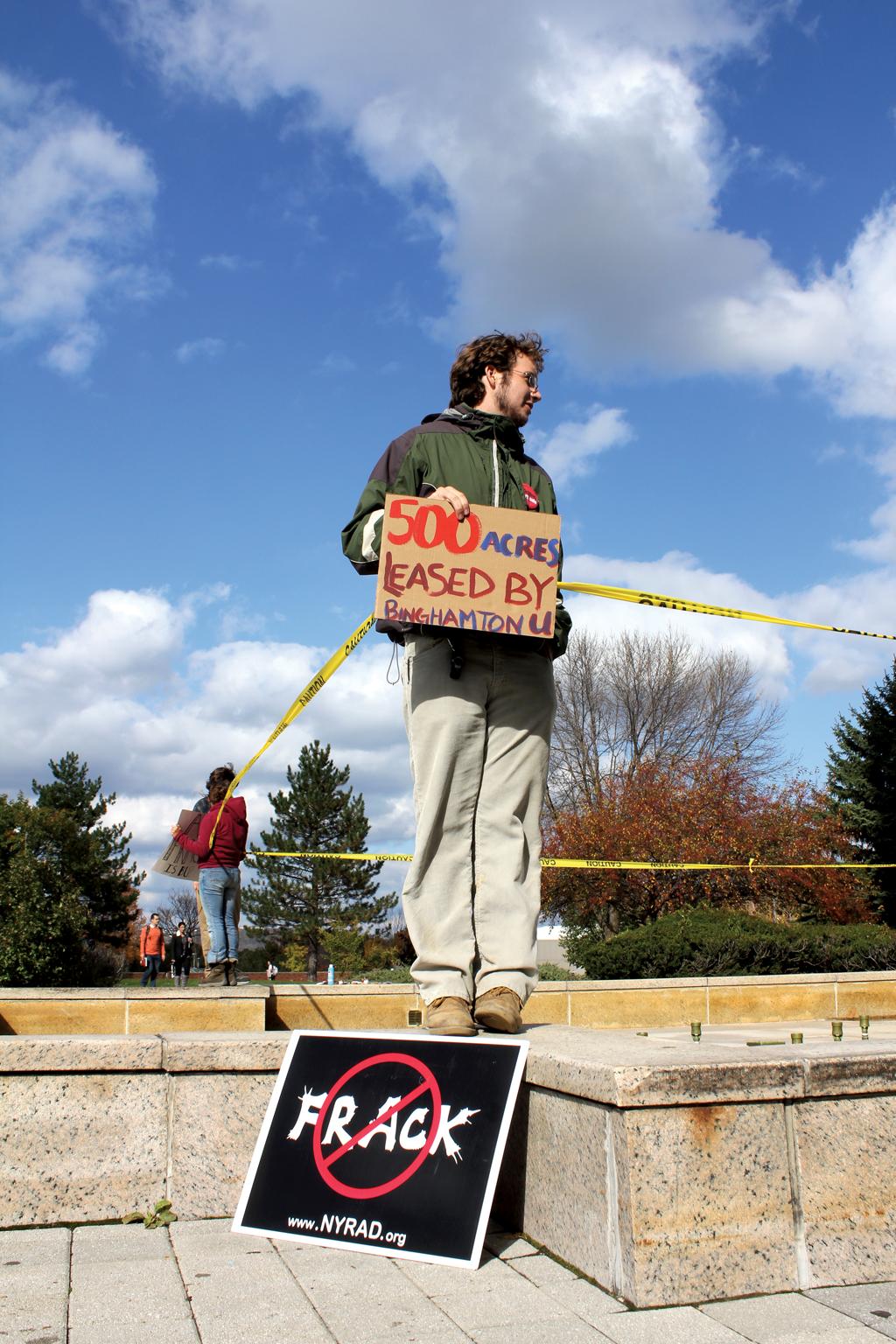
Broome County filed a lawsuit Monday, Aug. 22 against Binghamton University and the BU Foundation in response to the Foundation’s refusal to release documents related to the leasing of a parcel of University-owned land in the Town of Union to an energy company to conduct hydraulic fracturing.
Hydraulic fracturing, or fracking, is a drilling method that releases natural gas from subsurface rock formations by drilling into the ground and pumping water and chemicals down to fracture the bedrock, allowing the gas to bubble up to the surface.
The documents sought by Broome County from the Foundation would, if released, reveal what stipulations were included in the Foundation’s lease to Chesepeake Energy for environmental protection procedures that must be maintained during drilling.
The Foundation, which is a separate legal entity from the University that manages the University’s finances on its behalf, leased 563 acres of land to Chesapeake Appalachia, a branch of Chesapeake Energy, in 2008. Fracking has not yet commenced at the site, however, because a New York State moratorium on fracking has not yet lifted while the state Department of Environmental Conservation completes a review process to determine fracking’s effects on the environment and public health.
Fracking has become a contentious political issue around the nation. Many, including the gas lobby and regional associations of landowners, have argued that fracking will bring economic benefit in the form of jobs and payments on land leases. Others have cautioned that fracking would damage people’s health and harm the environment. Portions of New York, including much of the Southern Tier, sit on top of the Marcellus Shale, a formation of rock stretching beneath several states that contains one of the country’s largest deposits of natural gas.
According to the Press & Sun-Bulletin, Broome County made several requests, beginning in April, for the documents from the Foundation under New York State’s Freedom of Information Law (FOIL). The Foundation has asserted that because it is a not-for-profit corporation and not a state agency like the University, it is not subject to the Freedom of Information Law.
The Broome County Attorney’s office did not respond to a request for comment.
When asked to comment on the County’s lawsuit, Marcia Craner, BU’s vice president for external affairs and the executive director of the Foundation, said that because “the issue is now pending litigation, the Binghamton University Foundation will not discuss the particulars of either the suit or the lease.”
Several environmentally-oriented student groups at BU have voiced their disapproval related to both the land lease and the Foundation’s refusal to disclose more information about it publicly.
Last spring, Binghamton University’s chapter of the New York Public Interest Research Group, a student advocacy organization, organized an anti-fracking lecture series, petition and staged several protests in the Greater Binghamton Area.
Members of Binghamton Environmental, a campus group coalition that raises awareness of environmental issues involving both the campus and community, protested on central campus against the University’s lease of land for fracking in October 2010.
Jenna Fierstein, a senior majoring in environmental studies and president of Student Environmental Awareness Club, said her club supports Broome County in its efforts to obtain the lease documents from the Foundation.
“The Foundation’s refusal to comply with the transparency demanded by the law is intolerable,” Fierstein said. “Is an entity that is non-profit, but which collects money for the use of an entity which is State-funded, subject to FOIL? My opinion is yes.”


